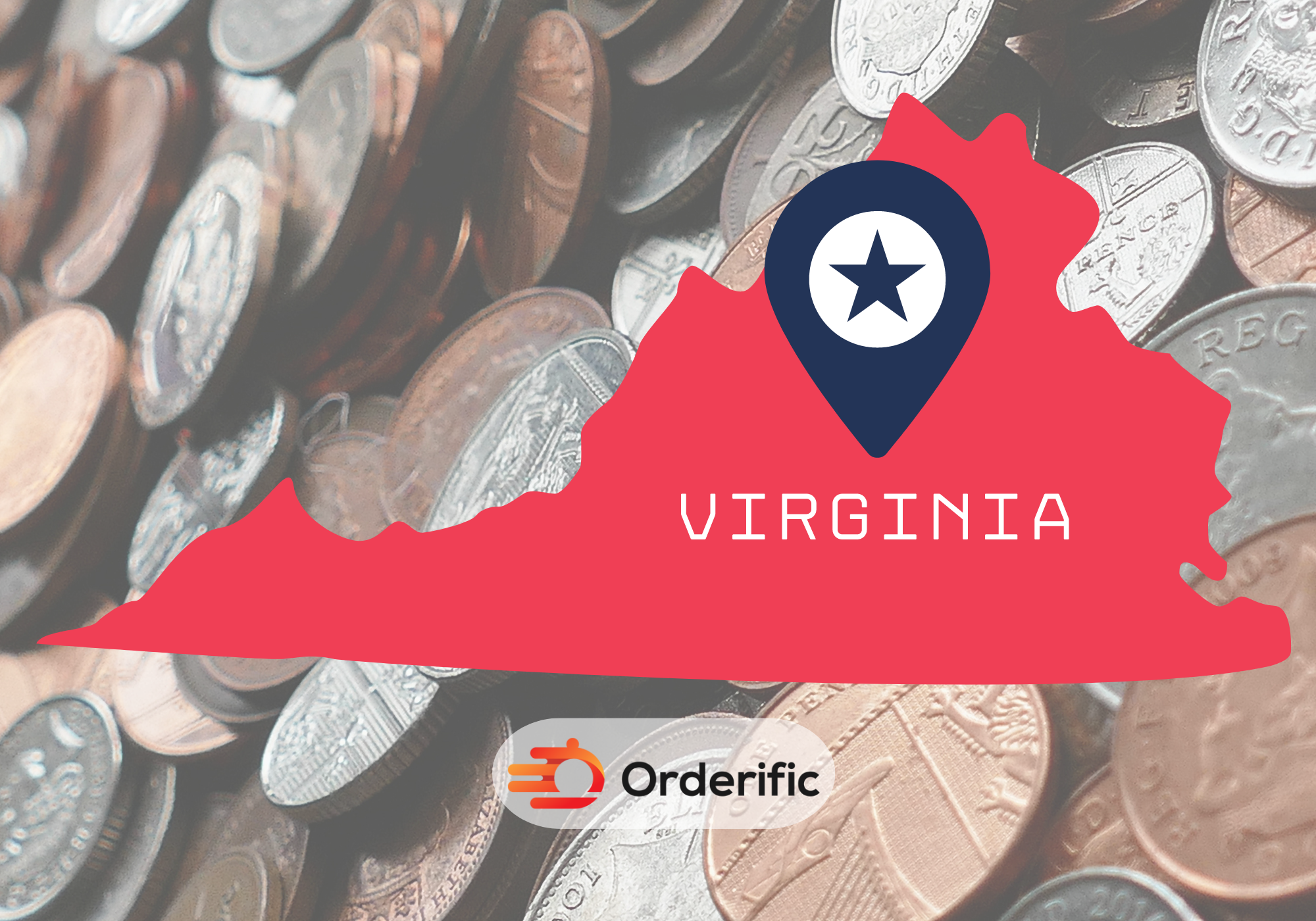Are you a worker or employer in Virginia? It’s important to stay up-to-date on the state’s minimum wage laws and regulations. This guide will provide an overview of Virginia’s minimum wage (VMW) law, as well as recent changes and updates from the General Assembly.
The minimum wage rate in Virginia is currently set at $12.00 per hour. This rate applies to all employees who are covered by the Fair Labor Standards Act (FLSA). The FLSA is a federal law that establishes labor standards, including minimum wage and overtime pay, for workers in the United States.
Virginia’s Minimum Wage Law
The state of Virginia has established a minimum wage law that sets the lowest possible wage an employer can pay an employee. This rate is currently set at $12.00 per hour and applies to employees who are covered by the FLSA. The law also requires employers to provide employees with certain benefits, such as paid sick leave and vacation time.
In addition, the law also prohibits employers from discriminating against employees based on their race, age, gender, religion or national origin. Employers must also provide a safe and secure work environment for all of their employees.
1. What is the Current Minimum Wage in Virginia?
The current minimum wage rate in Virginia is $12.00 per hour, which applies to all employees who are covered by the Fair Labor Standards Act (FLSA). There are a few specific exemptions from VMW law. Some examples include full-time students, those who work in family businesses, and employees who are under 18 years of age. Employers can also pay employees with disabilities a lower rate than the minimum wage if certain conditions
2. How Often Does VMW Increase?
The minimum wage rate in Virginia is updated every two years. In 2020, the General Assembly passed a bill that will increase the rate from $9.25 to $12.00 an hour by 2021. This new law will benefit workers across the state by providing them with much-needed financial relief.
In addition to the minimum wage law, employers in Virginia must also comply with other labor laws and regulations. These include providing workers’ compensation insurance for employees who are injured on the job, paying overtime wages to eligible employees, maintaining accurate timekeeping records, and posting workplace safety information. Employers must also adhere to the state’s Equal Pay Act, which prohibits discrimination in pay and benefits based on a person’s sex.
3. What is the History of VMW Law?
The Virginia General Assembly first established a state minimum wage law in 1936. At the time, the rate was set at 25 cents an hour. Since then, the rate has been updated multiple times to reflect changes in the cost of living and economic conditions in the state.
In 2020, VMW rate increased from $9.00 to $12.00 an hour. This is part of a larger effort to help low-wage workers in the state earn a livable wage and provide for their families.

VMW and Workers’ Rights
In addition to the state’s minimum wage law, Virginia also has other labor laws that protect workers’ rights. These include providing payment for unused vacation time, requiring employers to pay for certain expenses related to a worker’s job duties, and prohibiting discrimination in the workplace.
It is important for workers in Virginia to know their rights and be familiar with the state’s labor laws. This will help them ensure that their rights are being respected and that they are being compensated fairly for their work.
1. How Does Virginia’s Minimum Wage Impact Workers?
VMW law helps ensure that all workers are paid a fair and livable wage. This law helps lift low-wage employees out of poverty and provides them with additional economic stability. It also benefits businesses in the state by providing them with a more productive and satisfied workforce.
In addition, VMW law is an important part of protecting workers’ rights. It helps ensure that employees are treated fairly. And they are not discriminated against based on their race, age, gender, religion or national origin.
2. What are The Sub-Minimum Wage Rates in Virginia?
Some employees in Virginia are exempt from the state’s minimum wage rate and can be paid a lower rate. These include full-time students, those who work in family businesses, and employees who are under 18 years of age. Employers can also pay employees with disabilities a lower rate than the minimum wage if certain conditions are met.
Employers must keep accurate records of all employees’ wages and hours. They must also ensure that any sub-minimum wage rate is being applied correctly, and that it does not violate the state’s labor laws or the federal Fair Labor Standards Act (FLSA).
3. Are There Any Exemptions to VMW Law?
Yes, there are a few exemptions to VMW law. These include full-time students, those who work in family businesses, and employees who are under 18 years of age. Employers can also pay employees with disabilities a lower rate than the minimum wage if certain conditions are met.
In addition, some types of workers may be exempt from the state’s minimum wage law. Examples include independent contractors, babysitters, and certain agricultural workers. It is important for employers to familiarize themselves with these exemptions in order to ensure that they are complying with all applicable laws and regulations.
Virginia’s Minimum Wage and Businesses
In addition to protecting workers’ rights, VMW law also has an impact on businesses in the state. Employers must ensure that they are paying all of their employees a fair and livable wage, as well as providing them with other benefits such as paid sick leave and vacation time.
It is also important for employers to stay up-to-date on the latest changes to the state’s minimum wage law. This will help them stay in compliance with all applicable laws and regulations and ensure that they are providing their employees with fair pay and a safe work environment.
1. How Does Virginia’s Minimum Wage Impact Businesses?
VMW law has a significant impact on businesses in the state. Employers must ensure that they are paying all of their employees a fair and livable wage, as well as providing them with other benefits such as paid sick leave and vacation time.
In addition, employers must also comply with other labor laws and regulations. This includes providing workers’ compensation insurance for employees who are injured on the job, paying overtime wages to eligible employees, maintaining accurate timekeeping records, and posting workplace safety information.
2. What are The Penalties For Employers Who Violate Virginia’s Minimum Wage Law?
Employers who violate VMW law can face serious consequences. The state may impose civil penalties on employers for failing to pay employees the legally required minimum wage rate. In some cases, employers may also be subject to criminal prosecution and fines.
It is important for employers in Virginia to familiarize themselves with the state’s labor laws and regulations, and to ensure that they are complying with all applicable laws and regulations.
3. How Can Businesses Stay Compliant With Virginia’s Minimum Wage Law?
The best way for businesses to stay compliant with VMW law is to familiarize themselves with the state’s labor laws and regulations. Employers should also ensure that they are paying all of their employees a fair and livable wage, as well as providing them with other benefits such as paid sick leave and vacation time.
In addition, employers should keep accurate records of employee wages and hours, comply with the state’s Equal Pay Act, and post workplace safety information. By following these guidelines, employers in Virginia can ensure that they are compliant with all applicable laws and regulations and providing their employees with fair pay and a safe work environment.

Virginia’s Minimum Wage and the Economy
Virginia’s minimum wage law is an important part of the state’s economy. It helps ensure that all workers are paid a fair and livable wage, which in turn provides them with additional economic stability. In addition, it benefits businesses in the state by providing them with a more productive and satisfied workforce.
The increased minimum wage rate also has a positive effect on the state’s overall economy. It helps stimulate economic growth by boosting consumer spending, which in turn creates more jobs and increases tax revenues for the state.
1. How Does VMW Impact The State’s Economy?
VMW law has a positive effect on the state’s economy. The increased minimum wage rate helps stimulate economic growth by boosting consumer spending. This in turn creates more jobs and increases tax revenues for the state.
In addition, it provides low-wage workers with additional financial stability, which can help them cover basic expenses such as rent and food. Research has also shown that higher minimum wage rates can reduce poverty levels, which benefits the entire state.
2. What are The Arguments For and Against Raising Virginia’s Minimum Wage?
Supporters of raising VMW argue that it will help low-wage workers earn a livable wage and provide for their families. They also point to research showing that higher minimum wages can reduce poverty levels, stimulate economic growth and increase tax revenues for the state.
Opponents of raising Virginia’s minimum wage argue that it would hurt businesses by increasing labor costs and reducing profits. They also point to research showing that higher minimum wages can lead to job losses and discourage employers from hiring unskilled workers.
3. How Do Other States’ Minimum Wage Laws Compare to Virginia’s?
VMW rate of $12.00 per hour is currently little higher than the federal minimum wage rate of $7.25 per hour. However, many states have higher rates, including Vermont ($13.18), Rhode Island ($13.00) and New York ($14.20).
In addition, some states also have laws that require employers to pay employees a “living wage”. This is typically higher than the state’s minimum wage rate. For example, in California, employers must pay their employees at least $15.00 per hour if they have more than 25 employees.

Virginia’s Minimum Wage and Politics
Virginia’s minimum wage law is a highly contentious issue in the state’s politics. The General Assembly has been debating raising the rate for several years, but so far no legislation has passed. Supporters of raising the rate argue that it will help low-wage workers earn a livable wage and provide for their families. Opponents argue that it would hurt businesses by increasing labor costs and reducing profits.
The debate over VMW law will likely continue in the coming years as lawmakers consider how best to address the issue. In the meantime, employers must ensure that they are complying with all applicable laws and regulations and providing their employees with fair pay and a safe work environment.
1. What is the Political Landscape Surrounding VMW Law?
The political landscape surrounding VMW law is highly contentious. Supporters of raising the rate argue that it will help low-wage workers earn a livable wage and provide for their families. Opponents argue that it would hurt businesses by increasing labor costs and reducing profits.
In the past, both sides have proposed legislation to address the issue, but so far no legislation has passed. The debate is likely to continue in the coming years as lawmakers consider how best to address the issue.
2. Who Supports Raising Virginia’s Minimum Wage?
Supporters of raising VMW include labor unions, progressive politicians, and advocacy groups. They argue that a higher minimum wage would benefit low-wage workers by providing them with additional economic stability. It would also stimulate economic growth by boosting consumer spending and creating more jobs.
Opponents of raising the rate include conservative politicians, business owners, and some economists. They argue that it would hurt businesses by increasing labor costs and reducing profits, and lead to job losses as employers look for ways to reduce expenses.
3. Who Opposes Raising VMW?
Opponents of raising VMW include conservative politicians, business owners, and some economists. They argue that it would hurt businesses by increasing labor costs and reducing profits, and lead to job losses as employers look for ways to reduce expenses.
In addition, opponents also point to research showing that higher minimum wages can discourage employers from hiring unskilled workers. And also reduce overall job opportunities. They argue that the best way to help low-wage workers is to provide them with job training and education. So, they can obtain higher paying jobs.
Conclusion
Virginia’s minimum wage law is an important part of protecting workers’ rights and stimulating economic growth in the state. It helps ensure that all workers are paid a fair and livable wage, while also benefiting businesses by providing them with a more productive and satisfied workforce.
However, the debate over VMW law is ongoing, as lawmakers consider how best to address the issue. In the meantime, employers must ensure that they are complying with all applicable laws and regulations and providing their employees with fair pay and a safe work environment.
For more information about VMW law, employers can contact the Virginia Department of Labor and Industry. And also it is possible to consult an experienced employment lawyer. Understanding the state’s labor laws and regulations is essential for businesses to remain compliant and ensure their employees are treated fairly.
You can find us here for all interesting and informative content on a sectoral basis. For all the needs of your business, you are invited to step into the Orderific world here.
FAQs
What is the current minimum wage in Virginia?
The current minimum wage in Virginia is $12.00 per hour, which is higher than federal minimum wage rate.
How often does Virginia’s minimum wage increase?
VMW rate is typically adjusted annually, based on changes to the cost of living in the state.
Are there any exemptions to Virginia’s minimum wage law?
Yes, there are a few exemptions to VMW law.
How does Virginia’s minimum wage impact workers?
VMW law helps ensure that all workers are paid a fair and livable wage, which in turn provides them with additional economic stability.
How does Virginia’s minimum wage impact businesses?
VMW law has a significant impact on businesses in the state.
What are the penalties for employers who violate Virginia’s minimum wage law?
Employers who violate VMW law can face serious consequences, including civil penalties and criminal prosecution.













